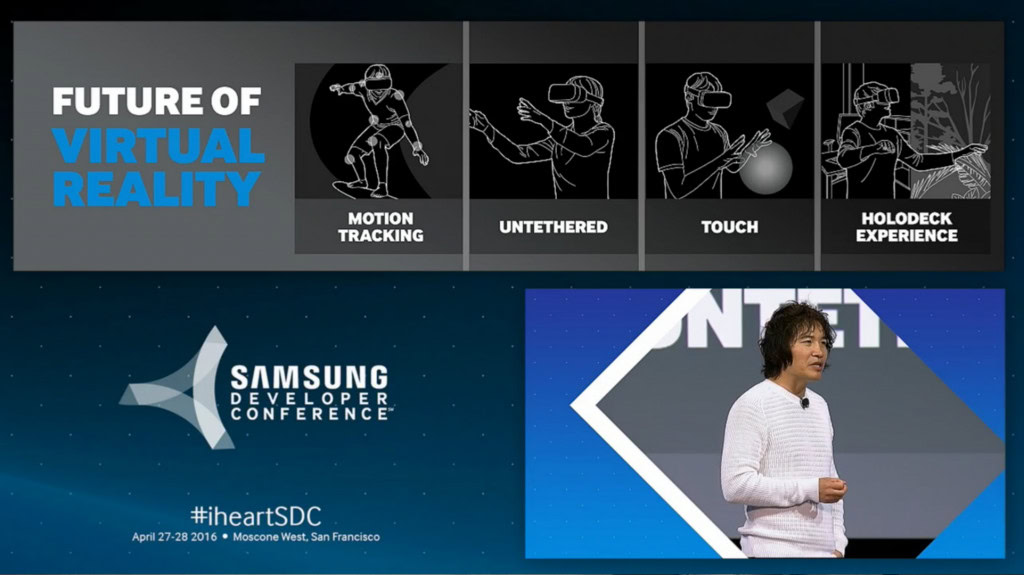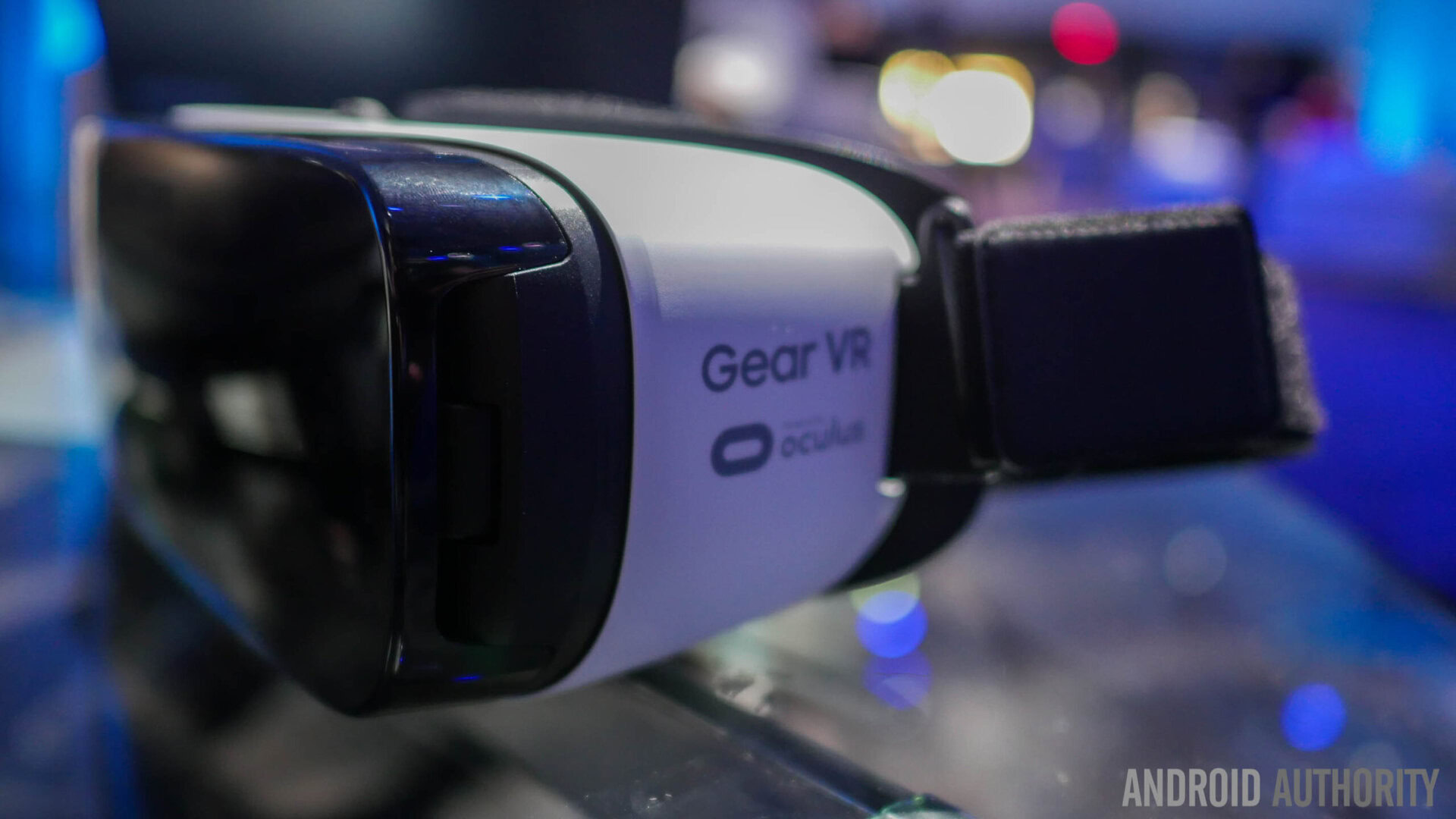Affiliate links on Android Authority may earn us a commission. Learn more.
Samsung planning a stand-alone VR headset

Virtual Reality has been making a major resurgence in the past few years thanks to efforts like the Oculus Rift, Gear VR, HTC Vive, and even Sony’s upcoming Playstation VR. The problem, however, is that these devices all require one thing: additional hardware. Both Oculus and the Vive require a PC, Sony’s offering requires a PS4 – and perhaps not even the current models – and Samsung’s won’t work without one of several Galaxy flagships.
Seeking to end this trend, Samsung has announced plans to build a stand-alone VR headset. At today’s Samsung Developer Conference in San Francisco, the company’s head of R&D for software and services, Injong Rhee, detailed what may be in the pipeline. The key phrase he used was “wireless and dedicated VR devices, not necessarily working with our mobile phone”, along with mention of hand and gesture tracking.
No estimated launch time was provided.
Big business for Samsung

Samsung is clearly committed to VR as evident by today’s news. It might come as a surprise to some, as the Korean OEM is often charged with “rushing” a product to market just to be there first. Such was the case with the original Galaxy Tab, the curved Galaxy Round, and the original Galaxy Gear smartwatch.
In particular some felt the Galaxy Gear – which initially ran Android and not Tizen – was hatched solely based on rumors Apple was planning to eventually release a wearable. Indeed by the time Cupertino’s product did hit the market, Samsung had released no less than six different offerings. The same also has held true with VR: Samsung’s Gear VR was first to market, and the company has subsequently made several versions to work with differing smartphone hardware.
That it is now seeking to make VR a stand-alone product however, shows that not only is Samsung trying to expand the appeal beyond Galaxy owners, but it also wants to be a major player in the market. The implications, or perhaps ramifications, are intriguing to consider, and Variety sums up the situation best as follows:
Samsung’s plans for a standalone headset are intriguing, in part because it could potentially pit the company against its current partner Oculus, which developed the software platform that powers the Gear VR. However, it’s also possible that Oculus and its owner Facebook could become more of a platform operator, leaving it to Samsung and other company’s to build Oculus-powered headsets. In that case, both companies would be directly competing with Google, whose VR unit is reportedly also working on a standalone wireless headset.
What do you think? Does the perspective of a stand-alone VR unit sound cool? Is the VR market overrated or could it very well be on the cusp of mainstream success? Leave your comments below!